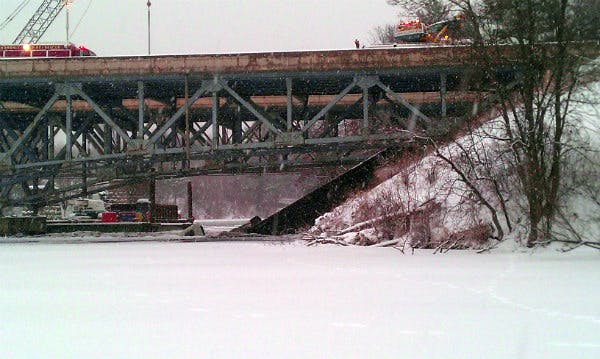The season's second-biggest snowfall slowed commutes and closed schools for thousands of students Tuesday, but not in the St. Paul or Minneapolis school districts — leaving many parents fuming.
They took to each district's Facebook page to criticize the decisions. Then, St. Paul parents saw their frustrations heightened about midmorning when officials opted to shut down after-school programs and let out middle and high school students 45 minutes early.
Ellen Whitted, who had made her way through unplowed streets coated with about 9 inches of snow to get her kids to Nokomis Montessori School on St. Paul's East Side, said that conditions already seemed rough enough to warrant a snow day.
"This just baffles me," she said.
At district headquarters, there was no second-guessing and no regrets, according to Michael Baumann, deputy of school and business operations. "We followed our practice and procedures," he said, adding that eight people, himself included, drove city streets before the decision to keep schools open. Buses, for the most part, were on time, he said, with less than 10 percent being 10 to 36 minutes late. Thirteen got stuck and one broke down, out of a fleet of 325.
Elsewhere, the Anoka-Hennepin School District closed for just the fourth time in the past 11 years.
In the west metro, the Hopkins and Edina districts started school two hours late. In Hopkins, that meant no trimming of subject classes for high school students, Superintendent John Schultz said. Instead, individual class periods were tightened, according to plan. "I am glad we had school today," he said.
In Roseville, where schools also stayed in session, Superintendent John Thein noted in a message to families that he knew many were relieved, but that he was "very well aware," too, that many were "not pleased with my decision" and were holding him directly responsible for any inconvenience.
"I assure you that I take my responsibility very seriously and try to keep the well-being of all our students and staff in mind," Thein said.
Safety concerns
In St. Paul, Angela Schwintek, an East Side parent, found herself getting "crabbier" as the day progressed, a situation due in part to her inability to drive on her hilly street. As a result, she said, her daughter, Madisyn Hammick, 15, had to walk about four blocks to catch the bus that takes her to Highland Park Senior High. There, the daughter arrived wet and too late to eat breakfast. To make matters worse, the first-hour chemistry test she didn't want to miss ended up being canceled.
"It just seems to me that at some point in time it would be smart to say: 'Let's just have one day off,' " Schwintek said.
Whitted, worried about the safety of latchkey kids heading off to school, wondered who St. Paul Superintendent Valeria Silva consulted before deciding whether or not to close schools.
Baumann said the district's transportation director consults with him and other senior leaders, and Silva speaks with area superintendents.
"Our concerns are about our families," he said. "Our students have to have a place to go."
As for the midmorning decision to suspend afternoon activities, he said it was unclear then when the snow would stop falling and whether roads would be clear of ice.
The district, in a statement, said any absences or late arrivals Tuesday would be excused.
In March, widespread warming tends to clash with lingering cold, touching off storms. As a result, March is a month with a reputation for being snowy. This month, though only five days old, is already the snowiest since 2008.
According to the National Weather Service, Twin Cities residents were looking at bare ground for much of middle and late January. But after Monday's and Tuesday's snowfall that dropped from 8 to 10 inches in different parts of the metro area, they had 11 inches in their yards.
That is likely to change soon with steady warming. Highs are predicted to rise daily from about 30 Wednesday to the upper 30s early next week. The first day when the normal daily high should hit 40 is March 13.
Staff writers Bill McAuliffe, Nicole Norfleet and Paul Levy contributed to this report.
Anthony Lonetree • 651-925-5036

Souhan: Wolves fans made Game 1 something special. Now bring on Game 2.

Kao Kalia Yang, Edel Rodriguez and others bring us gorgeous new picture books
Tip brings new search for Blaine woman who went missing 30 years ago

